Lebkuchen – German Cookies Recipe and Information
2023-09-15
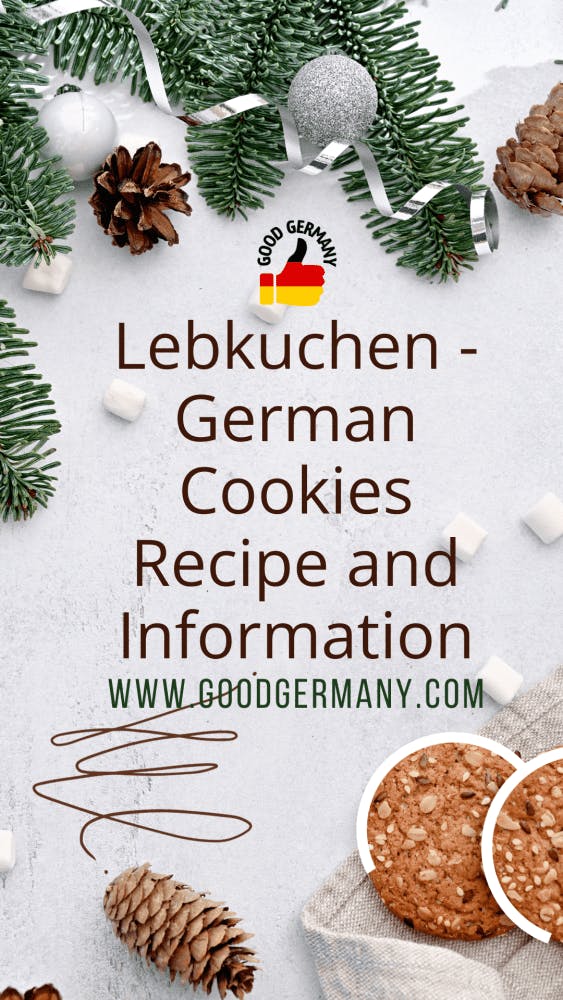
Introduction
When it comes to holiday treats, few things compare to the warm, spiced aroma of Lebkuchen cookies wafting through the air. Originating in Germany, these cookies are a beloved part of the country’s culinary heritage. In this article, we’ll dive into the delightful world of Lebkuchen German cookies, exploring their history, ingredients, variations, and the joy they bring to holiday celebrations.
The Origins of Lebkuchen
Lebkuchen, which translates to “life cake” in English, has a history dating back several centuries. It is believed that these sweet treats were first created by medieval monks in Franconia, Germany. Originally, Lebkuchen was used not only for indulgence but also for its supposed medicinal properties, thanks to the spices it contained.
Ingredients That Make Lebkuchen Special
1. Honey as the Heart
Lebkuchen’s unique sweetness comes from honey, which is a primary ingredient. Honey adds a natural, rich sweetness that balances the spices, making each bite a harmonious blend of flavors.
2. A Spice Medley
The hallmark of Lebkuchen is its aromatic spice blend. Cinnamon, cloves, allspice, and ginger create a symphony of warm and comforting flavors. These spices are not only delicious but also evoke a sense of nostalgia.
3. Nuts and Citrus Zest
Chopped almonds or hazelnuts provide a delightful crunch, while citrus zest, often from oranges and lemons, adds a zingy brightness to the cookies. These ingredients add depth and texture to the Lebkuchen experience.
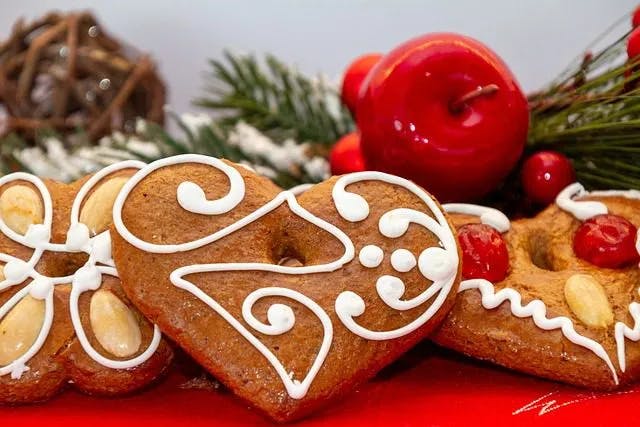
The Varieties of Lebkuchen
1. Classic Lebkuchen
The traditional Lebkuchen is round or rectangular, often glazed with a sugar-based icing and decorated with intricate designs. Nuremberg, a city in Germany, is particularly famous for its classic Lebkuchen.
2. Elisen Lebkuchen
Elisen Lebkuchen is a premium version, with a higher nut content and no flour, making it gluten-free. It’s a chewier, more indulgent option for those who appreciate a nuttier profile.
3. Printen
Printen, another German variation, hails from Aachen. These cookies are denser, spicier, and often contain rye flour. Printen can also have a wafer-thin layer of chocolate, making them irresistible for chocoholics.
4. Lebkuchen Hearts
Lebkuchen hearts are large, heart-shaped cookies with sweet messages piped on them. They are a popular souvenir at German fairs and festivals and are often given as tokens of affection.
Baking Your Own Lebkuchen
1. Gathering Your Ingredients
Before you embark on your Lebkuchen journey, gather your ingredients: honey, spices, nuts, citrus zest, and flour. Don’t forget a pinch of love!
2. Mixing and Shaping
Combine the dry ingredients with honey to form a dough. Shape the dough into cookies, using your creativity to make them uniquely yours. Whether round, heart-shaped, or intricate designs, it’s all part of the fun.
3. Baking and Glazing
Bake the Lebkuchen until they are golden brown. After cooling, you can glaze them with a sugar syrup or chocolate for that extra touch of sweetness.
The Joy of Sharing
Lebkuchen German cookies are more than just a treat; they are a tradition filled with warmth and togetherness. Whether enjoyed with a cup of hot cocoa by the fireplace or shared with loved ones during the holiday season, they bring joy and comfort.

Recipe
Ingredients:
2 1/4 cups all-purpose flour
1/2 cup finely ground almonds
1/2 cup finely ground hazelnuts
1 teaspoon baking powder
1/2 teaspoon baking soda
2 teaspoons ground cinnamon
1/2 teaspoon ground cloves
1/2 teaspoon ground allspice
1/2 teaspoon ground ginger
1/2 cup honey
3/4 cup granulated sugar
2 large eggs
Zest of 1 lemon
Zest of 1 orange
1/4 cup candied citron or orange peel, finely chopped (optional)
1/4 cup candied ginger, finely chopped (optional)
1/4 cup confectioners’ sugar (for dusting)
For the Glaze:
1 cup confectioners’ sugar
2-3 tablespoons lemon juice
Instructions:
In a mixing bowl, combine the all-purpose flour, ground almonds, ground hazelnuts, baking powder, baking soda, cinnamon, cloves, allspice, and ground ginger. Mix well and set aside.
In a separate large mixing bowl, beat together the honey, granulated sugar, eggs, lemon zest, and orange zest until the mixture is smooth and well combined.
Gradually add the dry ingredient mixture to the wet ingredients, stirring until a thick dough forms. If desired, fold in the chopped candied citron and candied ginger at this stage for extra flavor and texture.
Cover the dough with plastic wrap and refrigerate for at least 2 hours or overnight. Chilling the dough allows the flavors to meld and makes it easier to handle.
Preheat your oven to 350°F (175°C) and line a baking sheet with parchment paper.
Take the chilled dough and roll it out on a lightly floured surface to about 1/4-inch thickness. Use cookie cutters to cut out your desired shapes – traditional shapes include rounds or rectangles.
Place the cut-out cookies on the prepared baking sheet, leaving a little space between each.
Bake in the preheated oven for 12-15 minutes, or until the edges of the cookies turn golden brown. Be careful not to overbake, as Lebkuchen should remain slightly chewy.
While the cookies are cooling on a wire rack, prepare the glaze. In a small bowl, whisk together the confectioners’ sugar and lemon juice until you have a smooth, slightly runny glaze.
Once the cookies are completely cool, use a pastry brush to coat the tops of the Lebkuchen with the glaze.
Allow the glaze to set before serving. You can also decorate with additional candied peel or nuts if desired.
Enjoy your homemade Lebkuchen cookies with a cup of tea or coffee, or share them with friends and family during the holiday season!
These Lebkuchen cookies are a delightful taste of tradition and are sure to bring warmth and joy to any occasion.
Conclusion
In conclusion, Lebkuchen German cookies offer a delightful journey through history and flavor. These aromatic, spiced cookies have been a source of comfort and joy for generations. So, why not embrace this German tradition and create your own Lebkuchen cookies to share with family and friends this holiday season?
FAQs
Can I make Lebkuchen cookies ahead of time?
Absolutely! In fact, Lebkuchen often tastes even better after a few days, as the flavors meld together.
What’s the best way to store Lebkuchen?
Store them in an airtight container at room temperature. They’ll stay fresh for several weeks.
Are there vegan versions of Lebkuchen?
Yes, you can make vegan Lebkuchen by substituting honey with maple syrup or agave nectar.
Can I freeze Lebkuchen dough for later use?
Yes, you can freeze the dough and bake the cookies whenever you crave that Lebkuchen goodness.
Where can I find authentic Lebkuchen in Germany?
Look for them in traditional bakeries, especially in Nuremberg and Aachen. You can also find them at Christmas markets throughout Germany.
So, roll up your sleeves, gather your ingredients, and embark on a Lebkuchen-making adventure. Create memories and savor the taste of tradition with every delightful bite.
Youtube
https://youtu.be/PrtsSfGnifA?si=ODRHnACgtE1gRpTS
Share
Tag
Related Blog
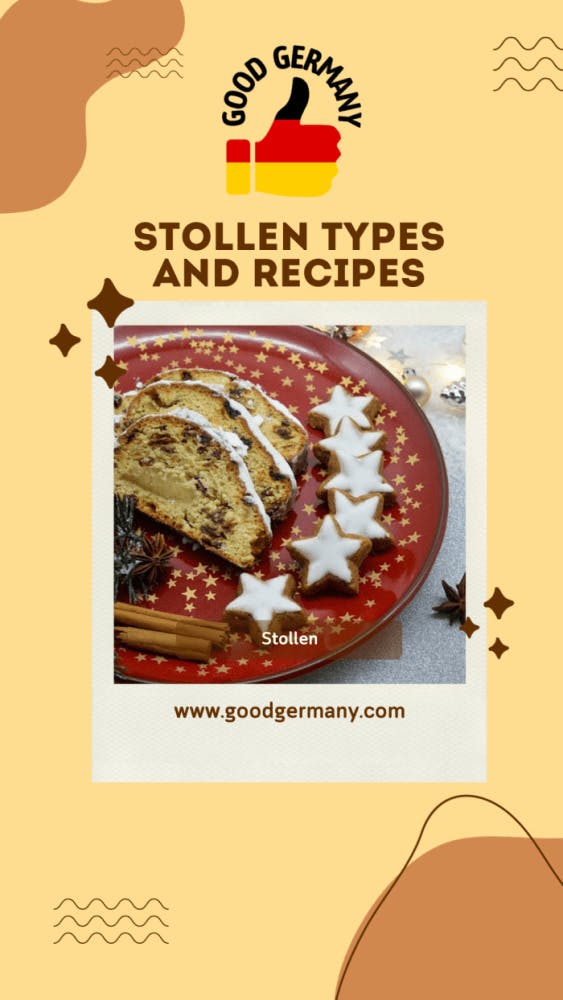
Stollen Types and Recipes: German Christmas Breads
2023-10-13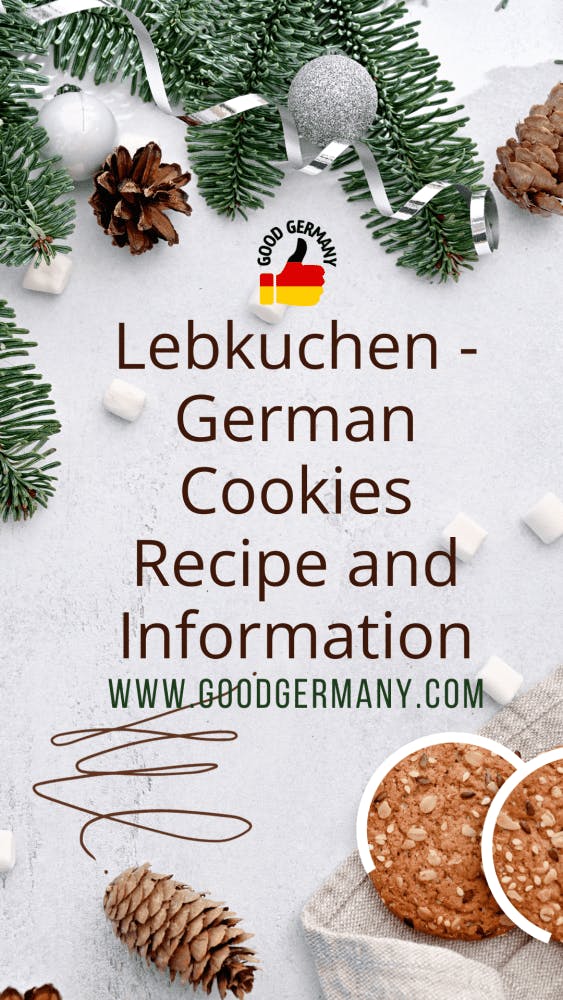
Lebkuchen – German Cookies Recipe and Information
2023-09-15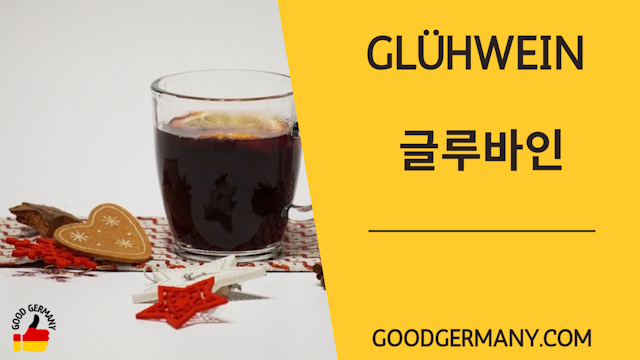
[Glühwein] Traditional German Mulled Wine, 12 Infos
2023-12-14
Exploring Food Delivery Services: Wolt, Uber Eats, and Lieferando
2023-08-27
German Beer Brands – Top 5
2023-08-18
Is German Tap Water Safe to Drink?
2023-08-01
Haribo Products(Flavors Top 17) – Since 1922
2023-07-29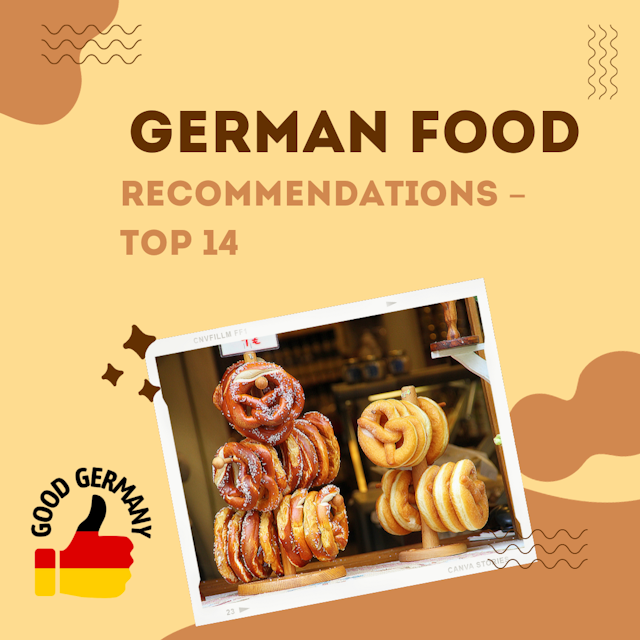
German Food Recommendations – Top 14
2023-07-15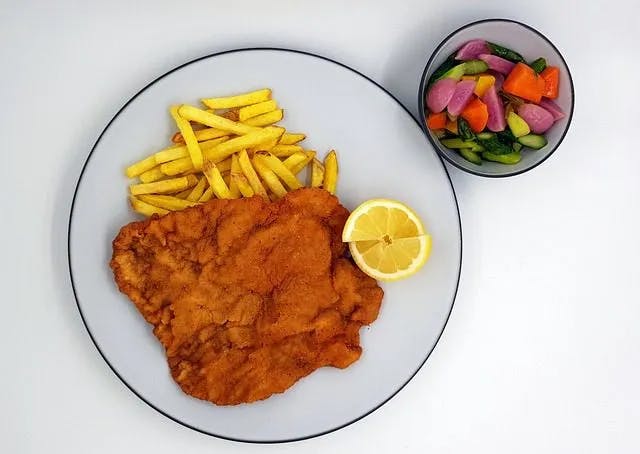
German Schnitzel Types – Top 11
2023-07-15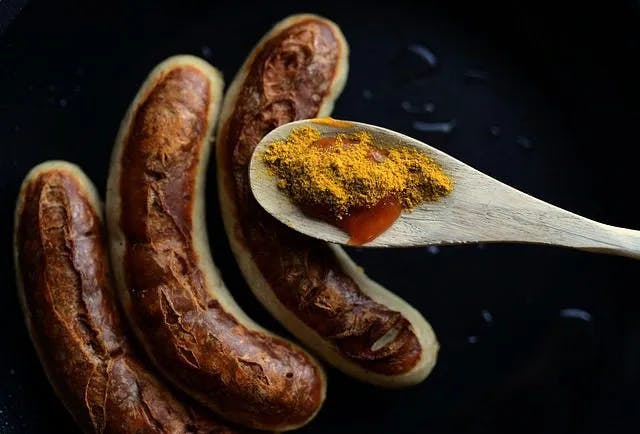
German Sausage(Wurst) Types: A Delicious Journey through Traditional Flavors
2023-07-04